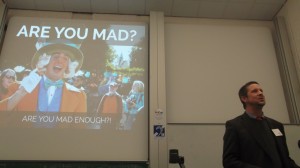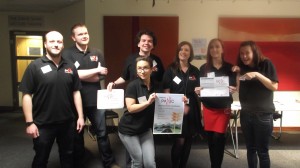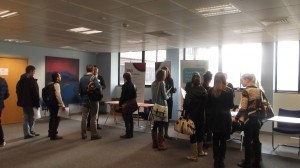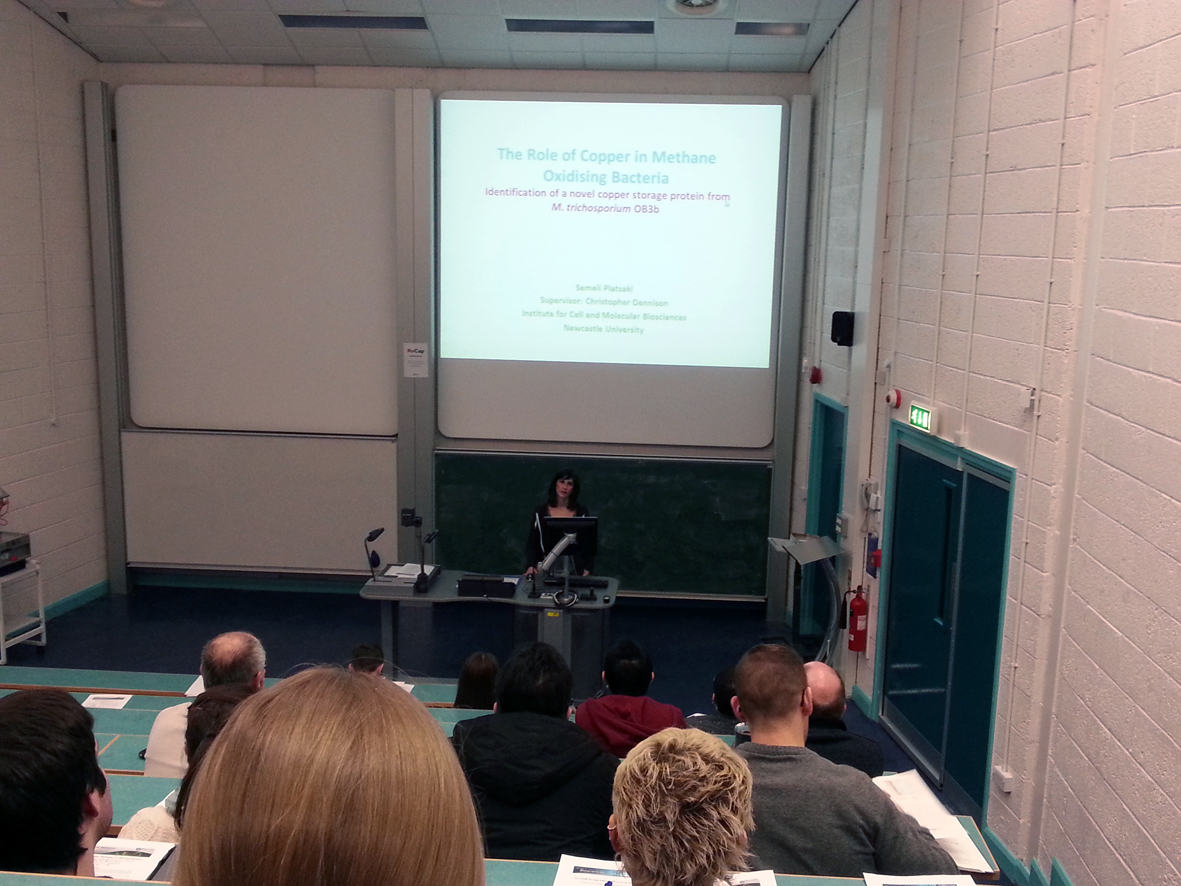by PAN!C committee
Last Tuesday marked the biggest PAN!C event to date: the Careers PAN!C Postgraduate Symposium. Like many postgraduate research students, it’s likely you’ve been subjected to those pesky lab bench shackles, leaving you little time to give a second thought for what may lay beyond the dreaded viva! There are so many career paths that lay open to you, but it’s difficult to make a start with career planning when it seems like such a distant and sometimes scarily unattainable goal. Can you keep up with the endless pressure of lab confinement with the small chance of attaining an academic professorship (since only 0.45% of PhDs become professors)? After such specific research training is it all a massive waste to move to a different field or change careers? And how the heck can a family life fit in with career success?
After being awarded the Innovation Funding in June, which was an important milestone for PAN!C, the committee were able to organise a half day symposium to showcase the vast array of career options available to PhD students and make the haze of career planning a little clearer.
The symposium hosted 12 insightful career development talks with speakers giving their account of a career path in a range of professions including academia, industry, recruitment, teaching, journalism and patent law. There were also useful stalls from Bionow, SRG and the NHS as well as information from Covance and the Careers Service providing.
 The common theme from the speakers was about having passion and enthusiasm for science and research, a notion we can all relate to in our PhDs. This motivation is sure to carry us in good stead to be able choose pretty much any science-related career out there. In short, we chose a good starting point!
The common theme from the speakers was about having passion and enthusiasm for science and research, a notion we can all relate to in our PhDs. This motivation is sure to carry us in good stead to be able choose pretty much any science-related career out there. In short, we chose a good starting point!
Another useful point from the day is that it’s important for postgraduate students to identify and reflect upon their transferable skills and not only to recognise careers where they are likely to succeed but also to fully demonstrate their ability to a potential new employer. Honing this skill will facilitate the diversification to other fields by acknowledging the valuable skill set we gain over our postgraduate studies.
An important take home message from many of the speakers is that determination and drive are so important whatever career you choose. As Ed Yong mentioned, play the long game with your career, it takes much time and effort to build but ultimately it’s worth it. You’ll need to push yourself hard, especially early on, to aid your career progression and rise to a position of responsibility. Often those with successful careers attribute this in part to ‘being in the right place at the right time’ but it’s also about creating opportunities for yourself and being prepared for those make or break situations when they come around. Professor Judith Howard mentioned that it is important to find your inspiration, whether it be a figure or an experience that motivates you or even just a field you really enjoy. Be sure of what you want to do then get out there and just do it. Success doesn’t come easy, but it’s certainly within reach.
PAN!C would like to thank the Postgraduate Innovation Fund for financial backing of the symposium and future academic events, and ICaMB for continued support of PAN!Cs endeavours. Of course, the rapidly growing numbers of postgraduate students getting involved with our events also deserve a massive thank you. Over 60 attended the symposium and the day was a huge success, with 100% of feedback stating it was good or excellent! Such enthusiasm and input from students over the last year has really helped PAN!C become established and have an impact both within ICaMB and recently other institutes across FMS, so much so that we see this as only the beginning of the PAN!C community!

The day ended with refreshments and wine for all and a well-deserved stint in the pub for the committee!
If you are interested in joining the PAN!C committee and furthering your organisational and networking skills, please get in touch. We’re always keen for new members and new ideas, the more the merrier!
Links:
panic.committee@ncl.ac.uk
http://www.societies.ncl.ac.uk/panicicamb/index.html
http://www.societies.ncl.ac.uk/panicicamb/careerspanic.html




